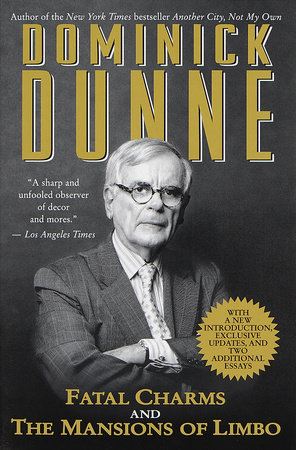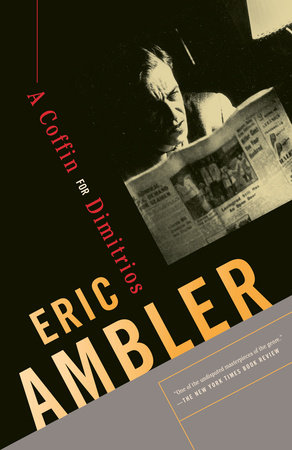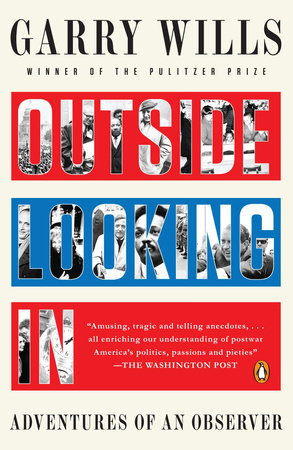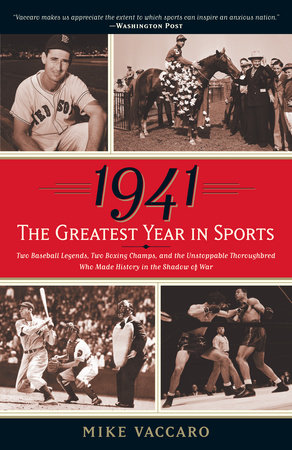Q: What drew you to Otto Preminger as the subject for a biography?
A: I had always been very interested in Preminger’s work (I liked even the films that most people didn’t like!) and of course I was fascinated by his flamboyant temperament. When I discovered that very little had been written about him, and that there had been no full-scale biography, I realized I had found a subject!
Q: You had great access to Preminger’s family and friends as you researched this book, including extensive personal interviews. Did you meet with any resistance, or were they eager to contribute?
A: I had not one moment of resistance from any of the family. Mrs. Preminger was eager to have the story told, “warts and all.” I think the source of their cooperation is two-fold. First, Preminger really was a family man, with a deep-rooted sense of family commitments and loyalty, and this is reflected in the eagerness with which his family was willing to talk about him. Second, Preminger fought landmark battles for freedom of speech, and I think that sense of fair play to which he devoted his life is reflected in the family’s openness. I felt that, for the Premingers, failure to cooperate with Otto’s biographer would constitute a form of censorship. And that was a form of behavior they did not want to be associated with!
Q: Preminger directed films for over forty years, ranging from musicals to film noir, and most everything in between. What in your opinion, what his most successful period?
A: Laura (l944) is often cited as Preminger’s most successful film; I disagree. I feel his most productive period began with Carmen Jones in 1954 and ended with Bunny Lake is Missing in 1965. In that period he presented a number of majestic films that have stood the crucial test of time: Anatomy of a Murder (1959), Porgy and Bess (1959), Exodus (1960), Advise and Consent (1962, his masterpiece), The Cardinal (1963). All are beautifully crafted works on a variety of subjects that continue to matter.
Q: In addition to his talents as a director and a producer, Preminger also crusaded against many of the restrictions placed on filmmakers during the 1950s and 1960s. How did his actions impact the movie industry?
A: Preminger fought the Production Code Administration and the Catholic Legion of Decency, resenting the attempts of both groups to tell him what he could or could not present in his films. His struggles, which went all the way to the Supreme Court, struck a mortal blow against censorship and are significant chapters in the history of guaranteeing the right of free speech in this country. Preminger also broke the blacklist by openly hiring a blacklisted writer, Dalton Trumbo. He was also the first major filmmaker to hire black actors in starring roles at a time when black characters were all but erased in American films.
Q: In his professional career Preminger hid the fact that he was born in Eastern Europe, claiming instead as his birthplace the vibrant city of Vienna. Was he ever criticized for distancing himself from his Eastern European Jewish roots?
A: Nobody really knew about his Eastern European roots, so successful was his “performance” as a Viennese sophisticate. He seemed Viennese through and through, and he was—the fact that he was not born in Vienna was an inconvenient fact that the filmmaker very skillfully disguised and ignored.
Q: You describe Preminger as having a good relationship with his father, who was a well-respected public prosecutor. How did his father’s support influence Preminger’s artistic development?
A: His father, a Jew from humble circumstances who became the equivalent of the attorney-general of the Austro-Hungarian empire, was a man of extraordinary self-confidence, and it is that sense of self that he bequeathed to his son. The father had no apparent artistic gifts whatsoever, so it wasn’t any artistic sense that Otto inherited. Instead, the quality that he got from his father was more fundamental, and more significant: an absolute belief in his right to be a success in whatever field he chose. And from his youth Otto was certain that he would have a successful life: it was his birthright.
Q: Given Preminger’s difficult nature and tyrannical outbursts toward his actors and crewmembers (he was known as “Otto the Terrible”) what was it about his directing style that made actors return to work with him time and again?
A: Despite his tantrums, Preminger was known as an extraordinarily generous producer, and when he wasn’t yelling he could be charming, caring, and fair. Most actors and crew recognized that. To get along with Otto, everyone, including his family, had to make allowances for his screaming tantrums, which would pass in a flash.
Q: Known for his womanizing, Preminger married three times, and also had notorious affairs with both Gypsy Rose Lee—with whom he fathered a son, and Dorothy Dandridge—who he directed in both Carmen Jones (1954) and Porgy and Bess (1959). What were his relationships like with these women? Did his “tyranny” extend to these relationships as well?
A: Certainly he was not tyrannical with Gypsy, who made the decision to raise their son Erik entirely on her own, without any support from Otto. With Dorothy he did exert the kind of omnivorous control that marked his directorial style, but he was also very kind and generous to her, very concerned about her career and her welfare, and solicitous about her severe emotional problems.
Q: In 1956, Preminger set out to find an unknown actress to play the role of Joan of Arc in his film Saint Joan, by means of a competition where he traveled to 19 cities auditioning girls for the part—not unlike some of our current reality TV programs. How unusual was this as a tactic to find an ingénue? Was it successful?
A: His search was unusual and a brilliant as well as a sincere form of showmanship that generated much publicity for his film. There was probably no chance of his finding a teenager who had all the equipment for the role. Jean Seberg, his choice, was not really up to the demands of the part, but she had a fresh, natural quality, as well as an incandescent beauty, that are striking. Her performance is not the calamity it has often been described as, and of course Jean Luc Godard, who cast the young actress in Breathless, also saw what Otto had seen: that Seberg was born to be on film.
Q: I have to ask about Preminger’s brief stint as the character “Mr. Freeze” on the TV series Batman in 1966. How did that come about?
A: Otto, an ever indulgent father, did the role simply at the request of his two young twins.
Q: Preminger’s best-known work includes such films as Laura (1944) and Anatomy of a Murder (1959). Are there any of his films that have slipped into obscurity that you would like to see resurrected in the public consciousness?
A: Yes: The Fan, an adaptation of Oscar Wilde’s Lady Windermere’s Fan, has been completely overlooked, and it is exquisitely done. (Preminger himself disliked it—and he was wrong in his estimate!) Also, I am working to see that after nearly fifty years of being out of circulation, in effect censored (because of legal entanglements and the objections of the estates of George and Ira Gershwin), Preminger’s great and misunderstood film of Porgy and Bess will be available again, both as a theatrical release and as a DVD offering. It is a work of art, a crucial cultural icon of twentieth-century America, that deserves to be seen again—contemporary audiences can come to their own conclusions about this long-contested and unfairly-maligned work.
Q: After “living” with Preminger for so long, are you working on a new project? Will it be another biography?
A: After living with a hot-tempered filmmaker for years, I am now working on a biography of George Stevens, who never raised his voice (on screen or off) and who was known to have the quietest sets in the history of American filmmaking! But like Otto, Stevens was a great filmmaker and a complicated man, full of contradictions, an apparently happily married man who was also a womanizer, a man with a gift for creating laughs on and off screen who was deeply melancholy and who never recovered from his experiences liberating concentration camps in World War II. These “difficult” personalities are ideal for a biographer!














